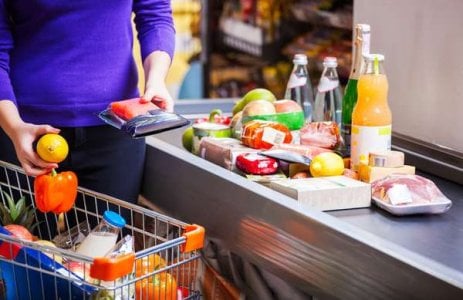Greens propose potential solution to affordability crisis amidst rising living costs
- Replies 6
In response to growing concerns over the affordability of essential grocery items, the Victorian Greens have proposed a measure to curb potential price gouging and ensure fair access to necessities for all consumers.
This initiative reflects broader discussions surrounding the economic challenges faced by households, particularly amid rising living costs and inflationary pressures.
As debates continue on how best to address these issues, the proposal to implement profit caps on essential grocery items underscores the importance of balancing market dynamics with the need to protect consumers' access to essential goods.
The proposal, released on Tuesday, May 28, suggests implementing profit caps on household staples such as fruit, vegetables, bread, and milk.
If passed, this legislation would empower the state government to classify certain products as ‘essential grocery items’.
Subsequently, the Essential Services Commission, Victoria's regulatory body, would have the authority to set limits on the profits supermarkets can make on these items.

This move comes at a time when many Australians are feeling the pinch of price hikes at the checkout.
The Greens argued that due to ‘skyrocketing prices’, items like bread and dairy should be regulated first and foremost.
They also suggested that rice, pasta, and some household cleaning products should be subject to these price controls, marking the first legislation of its kind in Victoria in over 30 years.
The Victorian Government has consistently emphasised that competition and consumer law fall under the jurisdiction of the federal government, citing the ongoing federal inquiry into supermarket prices.
However, according to deputy Greens Leader and Treasury Spokesman Sam Hibbins, the Victorian Government possesses the authority to intervene and prevent price gouging but has chosen not to do so.
‘In a cost of living crisis, people are struggling to afford food because profiteering supermarkets are jacking up their prices,’ Mr Hibbins stated.
‘Every time someone goes into a supermarket they are faced with unfair price hikes on basics like bread and dairy. It is next to impossible to do a cheap shop anymore. This is all happening while supermarkets are posting massive profits and increasing their profit margins.’
‘Labor is refusing to take on the supermarket duopoly and continues to wash its hands of responsibility, but this bill shows how it can be done,’ he added.
The Greens stated that they intend to gather input from both experts and the broader community before officially presenting the draft Bill to parliament at a future date.
However, according to a Victorian Government spokesperson, the Greens ‘knows that competition policy is a matter for the Federal Government and the ACCC as the relevant Commonwealth body for economic regulation’.
‘While the Greens waste time with cheap political stunts, we’re getting on with delivering real policies to help Victorians with the cost of living,’ they pointed out.
Interestingly, the timing of this proposal coincides with Woolworths' announcement of a ‘winter price drop’ on over 450 products, with an average price reduction of 20 per cent.
According to Woolworths Chief Commercial Officer Paul Harker, this initiative, which runs from May 29 until August 27, aims to help customers afford ‘grocery essentials’ during the colder months.
‘We understand the pressures our customers are under and the need to budget for hearty, warming meats and grocery essentials for their families,’ he stated.
‘Our Prices Dropped for Winter program is designed to give our customers certainty on the key products they’ll be buying this season to help their budgets go further.’
Meanwhile, Coles has been contacted to inquire about its potential implementation of a similar initiative.
As the Victorian Greens put forth a proposal to implement profit caps on essential grocery items, attention turns to the broader economic challenges faced by Australians, particularly amidst soaring housing costs.
With the cost of living becoming increasingly burdensome for many, initiatives like the one proposed by the Greens offer potential relief for consumers grappling with rising expenses.
This proposal aligns with ongoing discussions surrounding affordability and access to necessities, highlighting the interconnected nature of economic policies impacting households across the country.
 Have you noticed a significant increase in the cost of your grocery bills? Do you think profit caps on essential items could help, or do you see potential downsides to such regulation? We invite you to share your thoughts and experiences in the comments below.
Have you noticed a significant increase in the cost of your grocery bills? Do you think profit caps on essential items could help, or do you see potential downsides to such regulation? We invite you to share your thoughts and experiences in the comments below.
This initiative reflects broader discussions surrounding the economic challenges faced by households, particularly amid rising living costs and inflationary pressures.
As debates continue on how best to address these issues, the proposal to implement profit caps on essential grocery items underscores the importance of balancing market dynamics with the need to protect consumers' access to essential goods.
The proposal, released on Tuesday, May 28, suggests implementing profit caps on household staples such as fruit, vegetables, bread, and milk.
If passed, this legislation would empower the state government to classify certain products as ‘essential grocery items’.
Subsequently, the Essential Services Commission, Victoria's regulatory body, would have the authority to set limits on the profits supermarkets can make on these items.

The Victorian Greens suggested profit caps on essential grocery items like fruits, veggies, bread, and milk to tackle supermarket price increases. Credits: Shutterstock
This move comes at a time when many Australians are feeling the pinch of price hikes at the checkout.
The Greens argued that due to ‘skyrocketing prices’, items like bread and dairy should be regulated first and foremost.
They also suggested that rice, pasta, and some household cleaning products should be subject to these price controls, marking the first legislation of its kind in Victoria in over 30 years.
The Victorian Government has consistently emphasised that competition and consumer law fall under the jurisdiction of the federal government, citing the ongoing federal inquiry into supermarket prices.
However, according to deputy Greens Leader and Treasury Spokesman Sam Hibbins, the Victorian Government possesses the authority to intervene and prevent price gouging but has chosen not to do so.
‘In a cost of living crisis, people are struggling to afford food because profiteering supermarkets are jacking up their prices,’ Mr Hibbins stated.
‘Every time someone goes into a supermarket they are faced with unfair price hikes on basics like bread and dairy. It is next to impossible to do a cheap shop anymore. This is all happening while supermarkets are posting massive profits and increasing their profit margins.’
‘Labor is refusing to take on the supermarket duopoly and continues to wash its hands of responsibility, but this bill shows how it can be done,’ he added.
The Greens stated that they intend to gather input from both experts and the broader community before officially presenting the draft Bill to parliament at a future date.
However, according to a Victorian Government spokesperson, the Greens ‘knows that competition policy is a matter for the Federal Government and the ACCC as the relevant Commonwealth body for economic regulation’.
‘While the Greens waste time with cheap political stunts, we’re getting on with delivering real policies to help Victorians with the cost of living,’ they pointed out.
Interestingly, the timing of this proposal coincides with Woolworths' announcement of a ‘winter price drop’ on over 450 products, with an average price reduction of 20 per cent.
According to Woolworths Chief Commercial Officer Paul Harker, this initiative, which runs from May 29 until August 27, aims to help customers afford ‘grocery essentials’ during the colder months.
‘We understand the pressures our customers are under and the need to budget for hearty, warming meats and grocery essentials for their families,’ he stated.
‘Our Prices Dropped for Winter program is designed to give our customers certainty on the key products they’ll be buying this season to help their budgets go further.’
Meanwhile, Coles has been contacted to inquire about its potential implementation of a similar initiative.
As the Victorian Greens put forth a proposal to implement profit caps on essential grocery items, attention turns to the broader economic challenges faced by Australians, particularly amidst soaring housing costs.
With the cost of living becoming increasingly burdensome for many, initiatives like the one proposed by the Greens offer potential relief for consumers grappling with rising expenses.
This proposal aligns with ongoing discussions surrounding affordability and access to necessities, highlighting the interconnected nature of economic policies impacting households across the country.
Key Takeaways
- The Victorian Greens proposed profit caps on essential grocery items such as fruit, vegetables, bread, and milk to address supermarket price hikes.
- If passed, the Essential Services Commission would be able to determine how much profit supermarkets can make on these items if the draft legislation is passed.
- The proposal by the Greens aims to regulate prices due to skyrocketing costs and alleged price gouging by supermarkets, which are seeing large profits.
- While the Greens are seeking feedback on the proposed Bill, the Victorian Government indicated that competition policy should be handled by the Federal Government and the ACCC, dismissing the Greens' proposal as a political stunt.
- Woolworths announced a 'winter price drop' on staple goods, but there is no word yet on whether Coles will follow suit.







